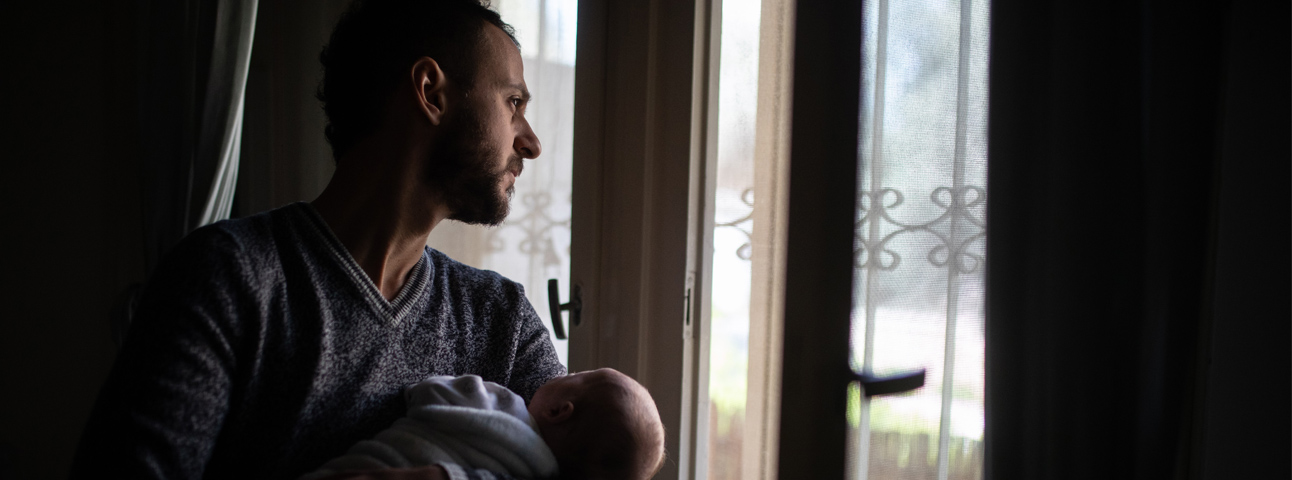How COVID-19 Changed Fatherhood
A survey by the Israel Democracy Institute found during the lockdown less than 20% of working men continued working as usual in the workplace. What does this mean for the future of work-life balance among Israeli couples?

Illustration | Flash 90
The coronavirus crisis and the accompanying lockdown forced many men to stay at home and prevented many of them from spending long hours in the workplace. A survey by the Israel Democracy Institute found that during the lockdown, less than 20% of working men continued working as usual in the workplace. More than a third worked full-or-part-time during this period, and the rest were furloughed or laid off. Paternal involvement in domestic tasks increased, and domestic routines became more egalitarian than in the past.
Despite the fact that their involvement is relatively low, many of the fathers said that they would like to be more involved in caring for and educating their children, and reported that their work is a source of conflict and stress in their lives, inasmuch as it stands in the way of greater domestic involvement.
So while over the last two months, there has been significant media interest in questions related to the future of the labor market in the wake of the coronavirus, such as how many of those furloughed will not be taken back to their jobs, which businesses will survive the crisis and which will not, whether we will see a significant transition to working from home, and so on. One of the lesser discussed implications of the crisis relates to the home and to the family. With the cancellation of lockdown restrictions alongside fears of a second wave, we are faced with the question of what domestic life will look like after the coronavirus, in terms of the respective roles of fathers and mothers at home.
Work is a central element in the lives of many men in Israel. It is part of their identity, and an arena in which they spend many hours each day. Israeli men work far more hours than men in most OECD countries (46 hours on average, compared with 40 hours for men in Italy, 39 in Spain, 36 in Norway, and 35 in Holland).
On the other hand domestic sphere is clearly divided along gender lines in Israel: Mothers do twice as much as fathers in terms of household tasks, and there are almost no families in which these tasks are equally divided between the two partners. Another interesting finding was that fathers’ level of involvement varies according to the time of day, with a relatively high level of participation in morning tasks (such as getting children ready for preschool and school), and much lower participation in the afternoon (picking children up or playing with them in the park). In the evening, fathers play an increasingly large role as the hour grows later. The task in which fathers are most involved is putting children to sleep. Not surprisingly, the study found that greater paternal involvement in domestic tasks is associated with shorter workdays and more flexible working conditions.
Will this disruption of our normal routine lead to significant long-term changes, and alter the division of household duties found in the majority of Israeli homes? The coronavirus crisis has offered a huge opportunity for social change, which will only be achieved if employers enable fathers to be more involved with their families. By cutting back on working hours and authorizing working from home on specific days, work-life balance will improve.
If fathers are more present at home, they will be able to play a more significant role in the lives of their children, and will help their partners to achieve a more manageable balance of their working and domestic lives. Such a change is also essential for their children, many of whom experienced much greater paternal involvement and a more egalitarian parental model in this recent period, which may serve as a model for their own parenting in the future. Finally, enhancing the equality between partners can be the first step towards greater equality in the labor market, and thus in society as a whole.
The article was published in the Jerusalem Post/Report.
